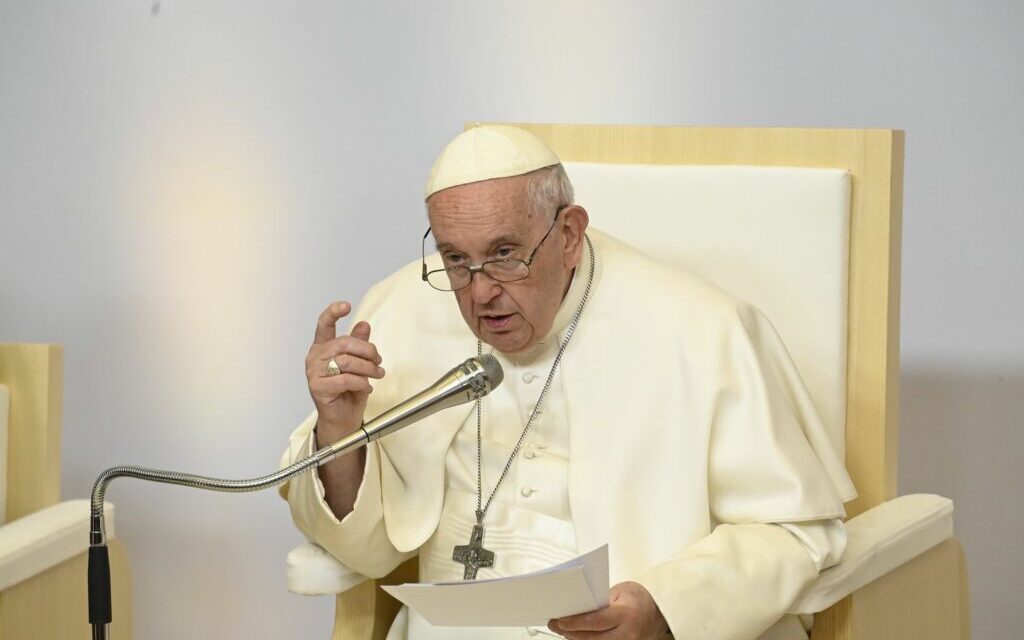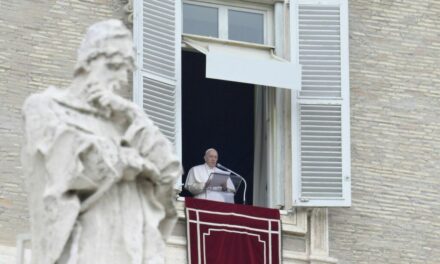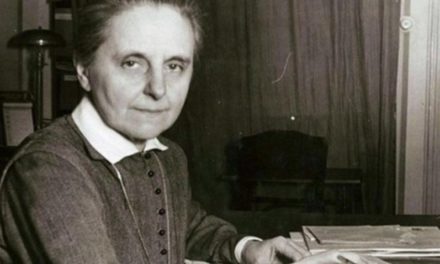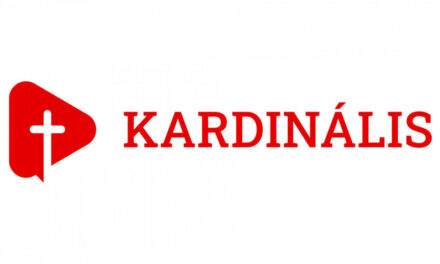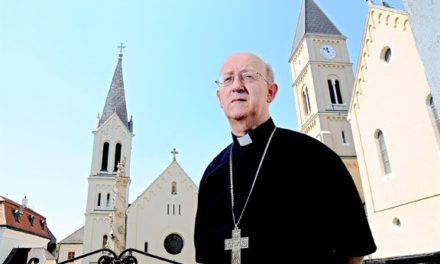In recent decades, almost all popes have touched the process of electing the head of the Catholic Church, according to the signs, Francis would not be an exception, as he appointed his old ally, the somewhat controversial Victor Manuel "Tucho" Fernández, as his "eyes and ears" in nine bodies.
According to the latest news, Pope Francis is preparing to reform the rules of the papal conclave. Andrea Gagliarducci, Vaticanologist of MondayVatican, wrote about all this. But before we get to what Gagliarducci learned, we should review the current regulation of papal elections.
In late antiquity and the first half of the Middle Ages, the pope was elected by the local faithful and clergy.
The College of Cardinals was established in 1059. In 1179, III. the Lateran Council decided that a two-thirds majority was required for the election of the Pope. Rules similar to today's were first introduced by Pope Gregory X in 1274. The conclave has been held in the Sistine Chapel since 1492. XV regulated the system better. Pope Gregory in 1621, who ordered that the first vote should be secret.
In 1587, Sixtus V decreed that there could only be 70 cardinals, as Moses also had 70 wise and elderly advisors.
But XXIII. Under János (1958-63), the number of the college of cardinals increased, as the pope wanted the body's composition to better represent the world church. VI. In 1970, Pál decreed that only cardinals under the age of eighty could be papal electors, and in 1975 he maximized the possible number of cardinals at 120. Although none of his successors formally changed this rule, they all violated it.
Almost every pope since 1945 has touched upon the rules of the conclave, even if some of them only in small ways. After all, a pope can only guarantee the rules for the election of his own successor, since his successor can rewrite the rules.
XII. For example, in 1945, Piusz abolished the rule that no one could vote for himself, but he increased the number of necessary votes by one: two-thirds plus one. This minimally modified XXIII. John, but VI. Paul restored XII. Pius' rules. II. János Pál amended this in 1996 so that if no one has a two-thirds majority by the 13th voting round, then an absolute majority (50 percent plus one voter) is sufficient, except if this happens by the afternoon of the first voting day, because then another voting circle. However, since it is enough for a narrow majority behind one candidate to last for 13 rounds,
XVI. Benedek revoked this measure, re-introducing the two-thirds rule with the concession that, excluding the first day, in the 33rd voting round, only the two first-placed candidates can be voted for, but they themselves are excluded from the vote.
St. II. János Pál dealt a lot with the conclave. The Gregorian Apostolic Constitution of Universi Dominici of 1996 is what - XVI. With minor modifications by Benedek - it basically regulates the order of conclaves to this day.
According to this, the electing cardinals live in St. Martha's House and vote in the Sistine Chapel.
The provision confirms that only members of the body of cardinals under the age of 80 can participate in the conclave - this is done because some voices demanded that, for example, if there is a synod or other event, then let the pope choose. Under the burden of automatic excommunication, John Paul II also forbade the cardinals to agree on the person to be elected in an organized manner before the campaign. This sounds good, but it is difficult to define what is included and what is not.
The last conclave was in 2013, attended by 115 cardinals, who elected Jorge Maria Bergoglio, archbishop of Buenos Aires, on the fifth ballot.
According to the news, the Pope plans to reduce the weight of the so-called general congregations, i.e. meetings of the cardinals before the conclave, by dividing the cardinals into smaller groups, namely according to language area, each with a moderator leader. That is, the general meetings before the conclave would work exactly like the small group discussions of the synods.
In addition, Pope Francis plans to reduce the significance of the two-thirds rule again, and after the 12th round, an absolute majority will be enough.
This means – given that there are two votes a day, one in the morning and one in the afternoon – that after six days 50 percent plus one vote would be enough.
According to Mandiner's information, these plans were leaked from St. Márta House (the residence of Pope Francis), but the reaction in Vatican circles was so strong that they finally denied the existence of the plans. By the way, "public opinion polling" with leaks is an established methodological part of Pope Francis' style of church government, which, according to Gagliarducci, is an essential, central factor of informality, just like the continuous emergency mode (or reform fury) and centralization (almost everything is decided personally by the pope).
The 87-year-old pope has faced several health problems in recent years, underwent abdominal surgery in the summer of 2023, was hospitalized due to breathing difficulties before his visit to Budapest in April 2023, and otherwise suffers from sciatica and uses a wheelchair.
Recently, however, not much is known about his condition, because the head of the church is hermetically sealed off from his wider environment, and almost only his close environment comes into contact with him, but it is not constant either: the staff of Szent Márta Ház who cares for him is replaced from time to time, as well as his confidants in the church administration.
Currently, it seems that the Pope's only long-term confidant is the former Archbishop of La Plata, the Argentine Prefect of the Congregation for the Doctrine of the Faith, Victor Manuel "Tucho" Fernández,
whom he appointed to head the dicastery on July 1, 2023, and created him a cardinal on September 30. Fernández had a significant influence on the Pope's apostolic exhortation Evangelii gaudium and the encyclical Laudato Si, and he was the author of the controversial apostolic exhortation Amoris Laetitia.
He is also called the ghostwriter and "personal theologian" of the pope, who declared himself to be much more progressive than Pope Francis on many issues.
Fernández was appointed by Pope Francis as a member of no fewer than nine Vatican dicasteries, i.e. he became the pope's eyes and ears in that many places (his predecessor, Cardinal Ladaria, was a member of five dicasteries). With this step, Pope Francis essentially made the Congregation for the Doctrine of the Faith more important than his own state secretariat, which was a common practice even before, after all, the Congregation for the Doctrine of the Faith was called La Suprema. Over time, however, the State Secretariat, which manages the political relations and diplomacy of the Vatican, became more important.
Now it seems that - strictly informally - the Religious Congregation is again the most important.
It is true that Pope Francis once carefully distanced himself from Fernández when, in an interview with La Stampa, he called the Fiducia Supplicans a document of the Congregation for the Doctrine of the Faith, which authorizes the informal, non-ritual blessing of gay couples.
There is a lot of controversy about the provision: some interpret it as meaning that only the members of a gay couple can be blessed individually, not their relationship, since this is in line with Catholic teaching, but others specifically want to see the relationship of gay couples blessed. The wording of the document does not help with clarity, as it does not write about individual people, nor about a relationship, but about a "couple".
In 1995, Fernández published a book entitled Heal me with your mouth: the art of the kiss, in which he also writes about the theology of the art of kissing; and in a 1998 Mexican book titled Mystical passion: spirituality and sensuality, he writes about the "mystical orgasm" with visible sensuality.
Later, the cardinal declared that he would no longer write these works of his youth, and since then he has published more serious works on mysticism.
In any case, Fernández appears to be the pope's only long-term ally and confidant, and some say he represents Pope Francis' long-term theological vision.
Cover photo: Pope Francis gives a speech at the Faculty of Information Technology and Bionics of Pázmány Péter Catholic University
MTI/Tamás Kovács

